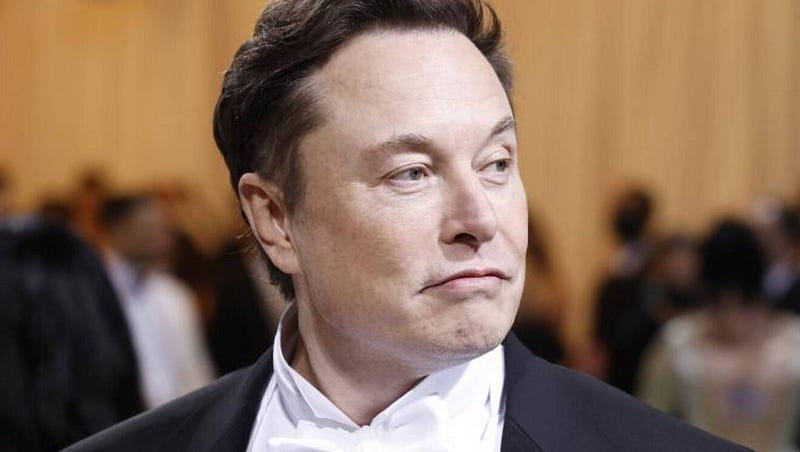
We are several weeks into the Elon Musk Twitter Experiment, and it is hardly going super. The company shed thousands of workers and advertisers are looking to jump ship. The return of several controversial accounts threaten to turn the site into a haven for the alt-right, and it remains unclear if Twitter Blue will create a viable road to profitability. The near-term economic horizon grows murky with the dual threats of high inflation and high interest. Potentially, this restricts the kinds of free-flowing capital that allowed ventures like Twitter to run in the red for years on end without consequence.
Mr. Musk signed up for all of this for the low price tag of $44 billion, enough to purchase several professional sports teams, end world hunger, purchase a few more rocket ships, or really anything he could have asked for. But why?
Twitter is Musk’s vanity project. Musk overpaid for it and does not care. He has repeatedly called Twitter the “de facto town square” of the Internet. Enabling free speech on the platform is one of his requirements for a functioning democracy. In hindsight, he probably could have just built his own site; now that most of the engineers left, he is merely left with the existing infrastructure and a brand.
How could the man who popularized electric cars and commercial spacecraft commit such a blunder? Was this guy not supposed to be the real-life Tony Stark? To answer these questions requires understanding how someone like him lives. Simply put, Musk does not live like the rest of us. All around him are employees at any one of his numerous ventures. These are people that need him for work. As a result, he goes unquestioned everywhere — except for Twitter. Online, Musk is confronted by supporters praising him endlessly or detractors mocking his every step.
For other examples, look at the recent controversies surrounding basketball player Kyrie Irving and entertainer Kanye West, who now goes by Ye. In late October, Irving posted a link to an Amazon listing page for
Hebrews to Negroes: Wake Up Black America
, an antisemitic film that denies the Holocaust and claims Jewish people worship Satan. When confronted on the matter during a press conference, Irving was hostile with a reporter. In his mind, the questions represented an attempt to create a viral clip. There exists a fundamental separation between Irving and the wider world. Outside of his bubble, there are haters on social media or booing opposing fans. His stepmother serves as his agent, preventing access to those outside. Irving is forced to live a sheltered life as a result of his immense fame. When he is directly asked questions threatening his ego, it is a foreign experience, and is indicative of why he was so hostile to the reporter.
Irving’s eccentricity has grown in proportion with his wealth and fame. As time has gone on, he has claimed the earth is flat, promoted anti-vaccination propaganda and shared content from conspiracy theorist Alex Jones. This reflects a man who has become more intrusive and less responsive to the outside world. This results in is a generationally gifted player who simply cannot live the way the vast majority of us do.
Likewise, Ye has been no stranger to controversy in his years in the public eye. However, the past few years have seen him change into a figure dominated by it. Ye has been appearing alongside neo-Nazi streamer Nick Fuentes on a media tour for his 2024 presidential bid, where he has frequently stated his affinity for Nazis. Weeks prior, Ye made antisemitic remarks over social media and violent threats toward comedian Pete Davidson. This pattern of hateful behavior has led Adidas and other sponsors to sever ties with him. Ye is one of the most famous people in the world and has been removed from his family after his divorce with personality Kim Kardashian was finalized. Years of being idolized and the wealth it created has disallowed Ye from living a normal life, and this recent behavior is the result. In the past, Ye has been open about his struggles with mental health issues, having been diagnosed with bipolar disorder in 2016. While these should be mentioned, it is also clear that experiencing this in the public eye has done him no favors. So long as the cameras follow him, Ye will continue to be controversial. With his wife and family gone, can he do much else?
There are other examples of famous people whose questionable behavior I could have used. Russian president Vladimir Putin’s invasion of Russia, the FTX scandal, Michael Jackson’s later life, cryptocurrency, and former president Donald Trump’s behavior all come to mind. I have noted that all of these figures are men, and most are unmarried or divorced; draw your own conclusions from that. Maybe we should not be surprised anymore. We should expect the famous and admired to do stupid things. Fame creates a bubble around those it infects, like Musk, and changes their behavior; in other words, it insulates them. Beyond talent or recognition, insulation, separates those with fame from those without.
















